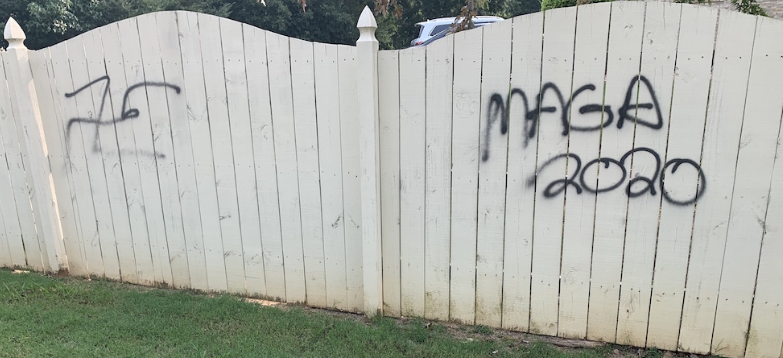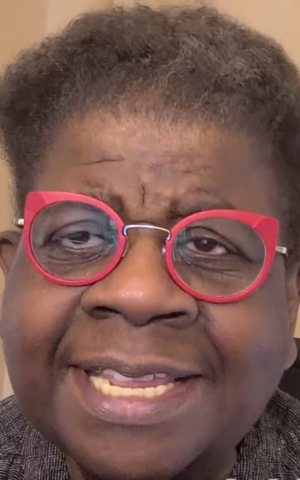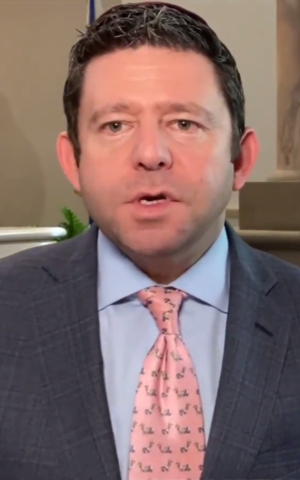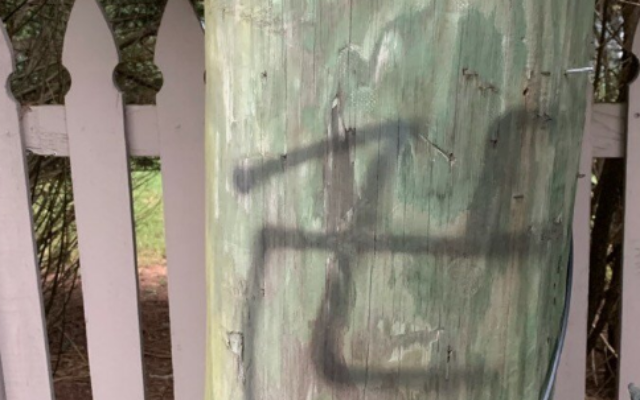Temple Kol Emeth Service Condemns Silence
Annual interfaith gathering at Temple Kol Emeth was large virtual event
Temple Kol Emeth in East Cobb hosted its annual Interfaith Ecumenical Thanksgiving Service Nov. 19 with the theme “Silence Is Not an Option.”
Hosting the service was Rabbi Larry Sernovitz, who took over as the congregation’s rabbi July 1. The following month he was forced to confront anti-Semitic graffiti in a Cobb County neighborhood near what was once a branch of the Marcus Jewish Community Center of Atlanta. It led to what the rabbi called a need for religious leaders and communities to “to stand with us as we say there’s no place for hate here in East Cobb.”
The rabbi continued, “This is not who we are, but unfortunately it is, which is why one of the reasons the theme for this year’s service is ‘silence is not an option.’ We look at what goes on in our world and we know the only way that we can make a difference is by speaking up and allowing our voice to be heard.”

In addition to the Marietta synagogue, there were 27 participating religious communities representing the Protestant, Catholic, Muslim, Sikh and Hindu faiths. Rabbis from Congregation Etz Chaim and Temple Beth Tikvah joined in welcoming participants.
The two-hour service was pre-recorded and streamed on the temple ‘s Facebook page. It was a wide-ranging and occasionally tumultuous look at the social and religious concerns of the past year.
The program featured musical performances by local musicians and congregations as well as documentary video of Black Lives Matters protests, urban confrontations between police and demonstrators as well as lighter moments in the standoff between law enforcement and protestors.

According to Rev. Deborah Bennett of the Emerson Unitarian Universalist Congregation of Marietta, the evening service was meant to bring people together in a common cause.
“We are all part of a beautiful, interconnected web of existence. What affects one affects us all. When we are silent about issues of justice, it creates a heartbreaking tear in our collective web of belonging. Silence is just not an option.”
Dr. Catherine Meeks is executive director of the Absalom Jones Center for Racial Healing. For her, the past year has largely been about the cause of finding common ground to solve America’s racial divide. Meeks, whose center is supported by Atlanta’s Episcopal diocese, said this is not a time for us to be quiet.
“We find ourselves right now in this country, in the space of being divided and really not being able to seem to understand that when all is said and done, we’re all beloved children of God and God expects us to figure out how to live here together. It is important for us to reaffirm that commitment, to affirm our understanding of that commitment and to stop acting as if we think it’s something we can negotiate about.”
Temple Kol Emeth’s founding rabbi Steven Lebow started the Thanksgiving service at the synagogue. He partnered with Monsignor Patrick Bishop of The Catholic Church of The Transfiguration in Cobb County to help support the temple’s food program at Thanksgiving for those in need.
This year Hal Schlenger chaired a committee of 34 persons from the temple and the community, who brought together over 50 participants in the Thursday evening service.

Not all of the discussion focused on the need to speak out about social and racial injustice. Rabbi Judith Beiner, who is the community chaplain at Jewish Family & Career Services took the opportunity to focus on the need for a more open dialogue on the issue of mental health and addiction and the life and death issues that sometimes are a part of that. For Beiner it is important for religious leaders to speak out and write about their personal experience.
“Doing so helps break down barriers by diminishing the shame and stigma for those who suffer. Nobody is immune to the consequences of mental illness, and I am proud to be part of a Jewish community that takes this seriously, and for whom silence is not an option.”
Rabbi Sernovitz wound up his first year as the host of the service with a plea to celebrate the “responsibility of one person to the other.”
He said, “God has made us, each of us b’tzelem Elohim, in the image of God, and therefore, along with God, we are caretakers of our world as Jews and as human beings. This is our legacy, our inheritance.”
The Ecumenical Thanksgiving service at Temple Kol Emeth is available for viewing on its Facebook page.
- Bob Bahr
- Community
- Local
- Temple Kol Emeth
- Grafitti
- Anti-Semitism
- Rabbi Larry Sernovitz
- Marcus Jewish Community Center of Atlanta
- east cobb
- MJCCA
- congregation etz chaim
- temple beth tikvah
- Black lives matter
- Rev. Deborah Bennett
- Emerson Unitarian Universalist Congregation of Marietta
- Dr. Catherine Meeks
- Absalom Jones Center for Racial Healing
- Steven Lebow
- Thanksgiving
- The Catholic Church of The Transfiguration
- Hal Schlenger
- Rabbi Judith Beiner
- Jewish Family & Career Services




comments